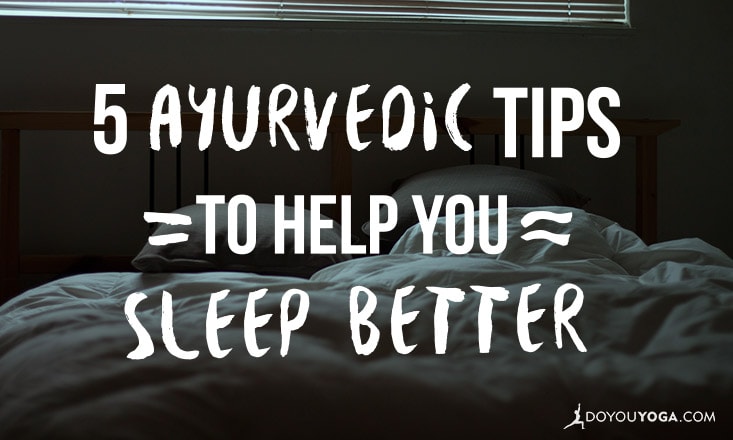As an author and creative writing instructor, yoga teacher, marketer, and a new student of Ayurveda, I end up traveling for work a lot more than I’d like. But, at heart, I am a creature of habit and a homebody who likes to wear pajamas and cook a big meal at the end of the day — you know, a well-balanced lifestyle.
For the longest time, there was a constant inner conflict between what my mind and body wanted and what I was able to provide them with.
Insomnia is a gross feeder. It will nourish itself on any kind of thinking, including thinking about not thinking. ~Clifton Fadiman
Change of place translated into poor quality of sleep. I’d have trouble falling asleep later and wake up exhausted. Often times, my digestion would get messed up.
My health started to deteriorate, my energy levels dipped, and I began to feel more emotional than usual. Writing, as it is, makes you emotional. Throw sleep-deprivation into the mix, and it gets ugly. JD Salinger once said, “Poets are always taking the weather so personally. They’re always sticking their emotions in things that have no emotions.” I became “that” person!
When I started to look around for options to rectify the problem, I chanced upon Ayurveda. Let me rephrase that. I grew up around Ayurvedic tips and wisdom, thanks to my mom, but like a typical teenager, I disregarded her knowledge until I became an adult.
By being in harmony with nature’s rhythms, we make our body happy and healthy.
Ayurveda has taught me that self-care is vital for good health and well-being. These 5 Ayurvedic principles have made me a better sleeper and in turn, a more mindful and compassionate human being. I hope they help you, too.
1. Be Disciplined About Your Sleep
My husband and I were in Mexico over the holidays with my college friend and her family. Everyone teased that I couldn’t stay up to watch most entertainment shows, because my eyes would close shut by 10pm, even though most kids in the audience would be running around. That’s true, but I woke up bright and early every morning despite all the vacation indulgences.
Because the mind is slow, stable, and dull between 6-10pm, it is the ideal time for falling asleep.
2. Mindful Eating
It’s best to eat your dinner by 6:30-7pm at the latest because as the sun begins to set, our digestive fire cools. Eating early, preferably a light meal in the evening, helps with digestion, which impacts the quality of sleep.
Also, remember to eat undistracted — warm foods with no TV or books or serious conversations for company. Enjoy and acknowledge the aromas, flavors, and textures of the food.
3. Oil Massage
I still remember when one of my Ayurveda teachers gave each one of us in class a sample bottle of oil to massage our feet with at night. I was skeptical at first about the efficacy of it, but a few days later I was hooked.
There are several nerve endings in our feet. Massaging relaxes you, improves circulation, combats stress, hydrates the skin, and ultimately leads to better quality of sleep. Therefore, I carry herbal oils with me on my trips.
4. Practice Pranayama
If you are a Type A like me, your mind rebels against shutting down.
Simply by practicing as few as 10 rounds of alternate nostril breathing (Nadi Shodhana) each day, you can help quiet the mind and calm your nervous system, and as a result, improve your sleep.
5. Practice Self-Compassion
Notice how some people leave you feeling blissful after an interaction, while a few might leave you emotionally drained and annoyed? In Ayurveda, health and wellness depend on a delicate balance between the mind, body, and spirit.
Before it’s bedtime, be mindful of who you interact with… both online and offline. Easiest way: turn off your computer, television, emails, and social media at least an hour or two before you go to bed.
As Thomas Dekker said, “Sleep is the golden chain that ties health and our bodies together.”
What tips do you have to help sleep better? Share them with us below!
Did you know?
When you commit to building heathy sleep habits, you take the first step to become your healthiest self – one full night of good sleep at a time. Check out our Complete Guide to Sleep Disorders – a resource to help you get your quality sleep back. Learn more about sleep disorders, their causes, symptoms and how to overcome them.


